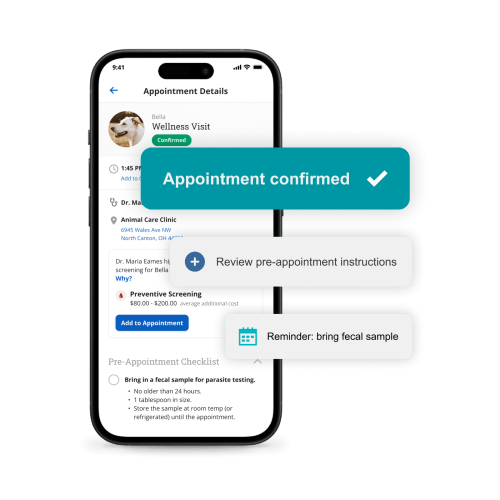Tales from the Frontline: Difficult Conversations - How to Have Them and Live with Them

Whether your position is in leadership, client focus or addressing patient care, there will always be conversations to be had that are difficult. You may be having conversations with staff about how they can improve. Maybe trying to diffuse an angry client. Or even telling a client bad news about their pet. These conversations are unnerving and stressful for veterans of the field. How do we have these conversations in a way that expresses our concerns or pass on bad news without it becoming something we dread doing?
Don’t Put It Off
Often when we must have a tough conversation, we try to put it off. In some cases, we hope that the issue will be fixed itself. Issues with staff will magically resolve. Angry clients will be less angry with time. Or we put off telling clients bad news regarding their patient until the end of the day because it’s difficult to think about passing on bad news. The more we put off difficult conversations, the more we will see that addressing and communicating an issue needs to happen in a timely manner. Why? Because if we wait too long to share feedback that isn’t ideal, the situation will rarely work itself out. Never mind the pit on nervousness you will carry in your stomach just waiting to share this feedback. The longer we wait to give constructive feedback or unfortunate news can be more stressful than just having the conversation. Remember waiting to have a tough conversation only adds stress to you while never changing anything.
Be Kind.
When you are looking at sharing feedback or having a tough conversation always ask yourself how you would want to receive this information yourself. Assume good intent and realize that most people want to do a good job, make sure they are communicating and want to do the best for their pets. Do not let past experiences or perceptions of how people will respond cloud your ability to have these conversations Address the topic at hand. But show kindness and acknowledge that this is a tough conversation but be transparent about what needs to change, give options and ask how you can support individuals when receiving bad news. Acknowledge this is a difficult conversation but you want to collaborate for a positive outcome.
Listen.
Conversations aren’t one sided. Listen to responses, complaints, and emotions. Give people a chance to express themselves and share their concerns. People always want to feel heard. By listening to others in tough situations, we can allow them to say their piece and look at this as a conversation instead of a reprimand or a heartless relaying of information. Do not listen while waiting to respond. Hear what others have to say and repeat back what you believe they are saying Active listening is crucial for all relationships. Don’t become defensive and remember that you would want to be heard in tough conversations. People don’t want to be lectured. They want to feel heard.
Follow Up with Resources
When having a tough conversation, it can often seem that we said the thing, but we don’t always gve people the resources to create change. Discussing improvement plans, continuing education, giving financial resources, and offering grief support is crucial. We may not be able to solve the problem and we shouldn’t think that we can. Offering resources is a way to encourage accountability and engagement in problem solving. Keep lists of resources for every occasion, complaint or concern. It gives people an opportunity to put in the work to help solve problems instead of giving a vague reprimand or delivering bad news without options on how to make things better.
Accept That There Isn’t Always a Solution
Sometimes despite your best effort to address concerns, listen and offer resources there may not be a feasible way to have things end in a positive way. Our job is to pass on information, give feedback and deliver difficult news. We as individuals can’t fix issues alone. In every conversation all parties have to be active participants. And sometimes due to ego, anger and grief people will look to blame instead of looking for a solution. Keep trying. Pass on information and resources, but at the end of the day remember you have done your best. How people interpret and manage tough times is ultimately theirs to figure out and navigate. Give yourself grace and remember that you cannot fix everything and that is ok.
Difficult talks will happen no matter what role you have in the hospital. By addressing issues in a timely and kind way and by giving resources is crucial in trying to maintain relationships. Sometimes no matter what we do, it may not solve the issue or help people change. By doing these small things we can work towards collaborative and positive outcomes. Working relationships require work and both parties being involved. You can accept you’ve done your best but accept sometimes you cannot fix difficult or stressful conversations. Have those conversations anyways.




